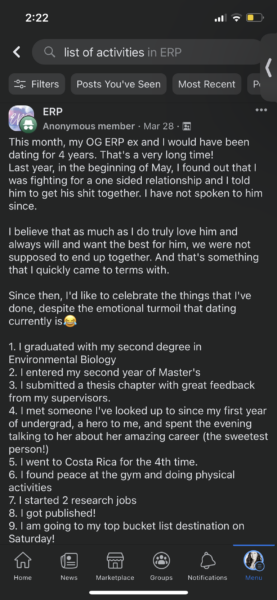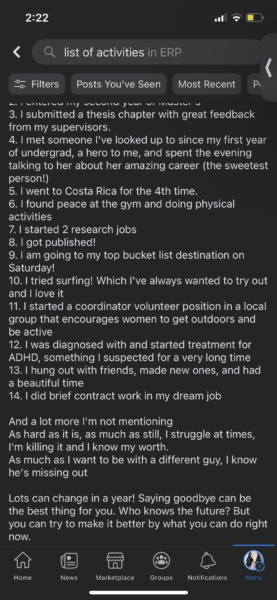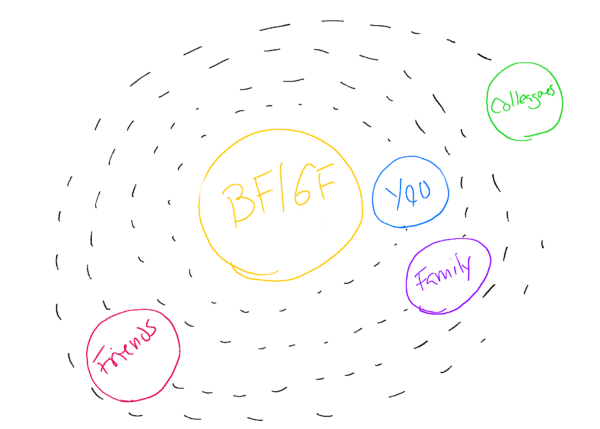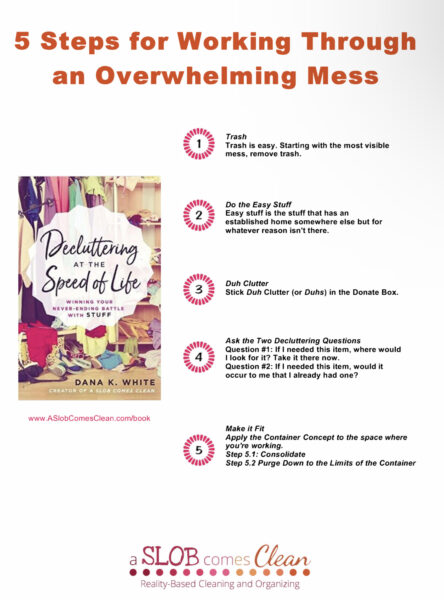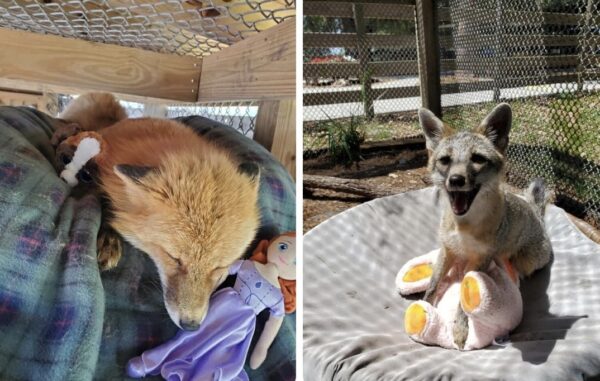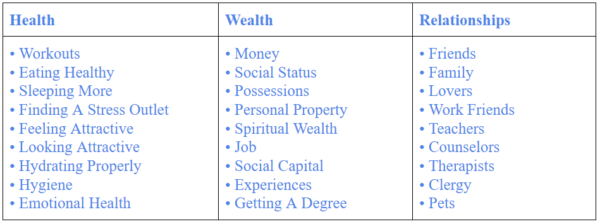If you want to know how to love yourself again after a breakup then you are in the right place.
Today my wife (who is co-authoring this article with me) and I are going to give you our 12 best tips for loving yourself after a breakup and ironically these tips can also have the added benefit of drawing your ex back in as a bonus.
- Learn about yourself
- Remember who you were before the breakup
- Daily affirmations
- Forgive yourself
- Avoid addiction
- Find a balance between green exercise and healthy exercise
- Declutter your life
- Connect with friends and family
- Social media clense
- Reparent yourself
- See a therapist
- Volunteer
Let’s begin!

What Are Your Chances of Getting Your Ex Boyfriend Back?
Take the quizTip #1: Learn About Yourself
I know… I know…
This may sound kind of cliché, but I promise, it does work.
So with this one, you’re going to want to try a variety of new activities and hobbies.
The idea is to figure out which ones you genuinely enjoy. Often, reality doesn’t meet our expectations.
One of my all-time favorite movies is ‘500 Days of Summer.’ There’s this really great scene where the main character is about to meet his ex, and he has all these expectations about how it’s supposed to go. But then it shows the reality, which is nothing like his expectations.
Learning about yourself and exploring new activities and hobbies can be a bit like that.
You may have these expectations that trying certain things will make you feel good, but sometimes the reality is that you need to actually try those things to see what you truly enjoy.
Now, throughout our time here at Ex-Boyfriend Recovery, we have been blessed with many different success stories.
One of my favorite things is seeing the progress people make in our community.
So, I’m going to attach a couple of images here from one of our community members, so you can see how seriously people take this and how awesome it is.
This particular individual mentioned that they,
- Graduated with a degree,
- entered their second year in their master’s program,
- worked on their thesis,
- went to Costa Rica,
- found peace at the gym,
- started doing research jobs,
- got published,
- and tried to fulfill their bucket list destinations.
All of these experiences helped them learn about themself.
Tip #2: Remember Who You Were Before The Breakup
The second tip is to remember who you were before the breakup.
You can motivate yourself after the breakup by engaging in hobbies you enjoyed before entering the relationship.
For instance, let’s say you used to play the guitar or paint a lot before you got into this relationship with your ex.
However, during the relationship, you may have focused too much on your ex.
Recently, my wife and I wrote an article on codependence because we believe many of our clients are codependent. This means that their world often revolves around their ex, when it should be the other way around.

What Are Your Chances of Getting Your Ex Boyfriend Back?
Take the quizThey should not be constantly orbiting around their ex.
Sometimes, people forget who they were before the breakup and stop doing activities they once loved. It’s important to reintroduce those activities into your life.
In unhealthy relationships, our partner can become the center of our world, which ultimately cause us to neglect our own passions.
By revisiting old hobbies, you can refocus on yourself after the breakup.
So, I guess in a way tips #1 and #2 are intimately connected.
Tip #3: Daily Affirmations
Tip number three is about daily affirmations.
I came across a fascinating research study from the National Library of Medicine that suggests,
Self-affirmation can activate brain systems associated with self-related processing and reward. In simpler terms, it argues that daily affirmations can help rewire your brain, eliminating negative self-talk and fostering a positive outlook on life.
To practice daily affirmations, start by looking in the mirror first thing in the morning and saying a positive statement about yourself.
Even if you initially don’t believe what you’re saying, your brain will start to believe it over time as long as you vocalize it.
That’s the essence of the research findings I linked to above. Therefore, it’s of vital importance to make a conscious effort to replace any self-negative talk with positive affirmations.
For instance, if you lose your car keys and catch yourself saying,
“Oh, I lost my car keys again. I’m such an idiot,” your brain will internalize that and develop it as a core belief.
It will lead to a negative outlook on life, even though it’s not accurate.
Instead, we recommend reframing the situation with self-compassion. When you lose your keys, tell yourself,
“I lost my keys, and when I find them, I’ll put them back in the same spot next time. Everyone loses their keys sometimes.” This approach promotes a healthier mindset.
By combining daily affirmations, practicing positive self-talk in front of the mirror, and identifying and replacing self-negative talk with positive affirmations, you can achieve remarkable results and significantly boost your confidence.
Tip #4: Forgive Yourself
Every negative experience or failure in life, including your breakup, is an opportunity for learning and growth.
I mean, my gosh, I can’t tell you how long it took me to learn this concept and internalize it. Now that I’m a father I even notice my daughter struggling with it as well.
There’s often an expectation that life rewards winners, and there is no value in losing. Therefore losing is often viewed negatively. However, the truth is that losing is where most of the growth happens. I’m trying to teach my daughter, and I sometimes need to remind myself, that losing is simply an opportunity to improve.
A few weeks ago I got into this ridiculous anime called Record of Ragnarök.
The premise is simple, all of the gods get together and decide they are going to destroy humanity but before they do so they give them a chance to compete in a tournament against the gods.
(Going into spoiler territory here so you’ve been warned)
One of the first people called up is this guy named Sasaki Kojiro. He’s known as the greatest loser,

What Are Your Chances of Getting Your Ex Boyfriend Back?
Take the quizAnd without a doubt, to me this is maybe the single coolest thing ever. In the entire life of this character he never won a match once. He basically would challenge people who knew was better than him, lose, and then practice until he knew he was good enough to beat that person and then move on to the next challenge of someone who was better than him.
Rinse and repeat.
Over and over again.
You see, this fictional character understood something that we can all take a lesson from. Losing is not inherently negative. It just means that a particular approach didn’t work, and we need to try a different one next time.
Maintaining this mindset consistently can lead to incredibly positive results, outlook, and progress in life.
Every experience in life is a learning experience, including your breakup. Many people feel intense regret over something they did or said during the relationship, which often leads to replaying those moments repeatedly and getting caught in a cycle of negative self-talk. W
e often hear from our clients phrases like, “If only I hadn’t said that” or “If only I hadn’t gotten so emotional.” It’s important to let go of those regrets.
Forgive yourself if you’re feeling shame, guilt, or self-blame.
Holding onto these negative feelings will not be productive.
Instead, be like the greatest loser in the world. Seek out experiences that help you grow and don’t look at failures as failures. Train yourself to look at them as opportunities.
Tip #5: Avoid Negative Addictions
This should be rather obvious: avoid falling into addictions, or if you do, redirect them towards positive outlets.
Addictions can manifest in various forms, such as excessive eating, drinking or drugs.
In fact, when scientists observe the brain during a breakup, they notice that the part responsible for grief activation is the same part that lights up in drug addicts during withdrawal. (source)
There are many similarities between the experiences of someone going through withdrawal and someone experiencing a breakup.
Often, individuals caught in the aftermath of a breakup engage in what I refer to as negative addictions.
These may include overeating or binge drinking (like I mentioned above).
However, I believe it’s important to harness the addictive nature and redirect it towards positive pursuits.
A powerful example of this is David Goggins, who serves as an inspiration to many.
If you’re not familiar with him, he used to be an incredibly overweight person, enduring a difficult childhood. Those memories and experiences could have kept him trapped, but he decided to make a change.
He channeled his addictive behavior away from negative addictions and towards positive ones, such as intense physical workouts and relentlessly pursuing his dream job.

What Are Your Chances of Getting Your Ex Boyfriend Back?
Take the quizOh, and when I say “intense” I mean INTENSE:
David Goggins exemplifies how redirecting addictive tendencies towards constructive habits can lead to incredible transformations. I have witnessed similar approaches work wonders for many of my clients, allowing them to break free from negative patterns and make positive changes in their lives.
Tip #6: Engage In Green Exercises
Tip number six is about finding a healthy balance between green exercise and indoor exercise with a buddy.
Research strongly supports this point, and in the outline phase of this article my wife has provided three studies that back it up.
- https://www.ncbi.nlm.nih.gov/pmc/articles/PMC10078493/
- https://www.ncbi.nlm.nih.gov/pmc/articles/PMC4847025/
- https://www.ncbi.nlm.nih.gov/pmc/articles/PMC6727944/
I mean, if that’s not enough to convince you I don’t know what is.
But back to the discussion.
What is green exercise?
Green exercise encompasses activities like nature walks, rock climbing, cycling, swimming, and kayaking, allowing you to enjoy the benefits of vitamin D crucial for your well-being.
If you didn’t know insufficient vitamin D levels can lead to depression-like symptoms.
Personally, I used to be an avid runner, but last year a knee injury prevented me from continuing.
Now, I find myself cycling indoors on a stationary bike. Although I still love working out, I miss the benefits of green exercise and the euphoria it brings. Exercising with a buddy indoors helps alleviate the feeling of solitude, but there’s something truly captivating about being outdoors.
Recently, I went on a bike ride with my dad, and it was revolutionary just being outside. The insane euphoria I got, just basking in the sun. I can’t tell you how often I constantly feel like I’m in a prison, similiar to a hamster on a wheel. Everything I do is indoors.
- I work indoors.
- I bike indoors.
- I interact with my family indoors.
Don’t get me wrong, I love writing and working but every day I look at the window and think, “man I wish I could go out there and just enjoy the sun.”
This highlights the power of green exercise. There’s something different about being in nature.
So, get outdoors and engage with the natural world.
Tip #7: Declutter Your Life
Decluttering is something my wife is really passionate about, and there are great resources available for it. Perhaps the most noticible authority is a woman named Dana K. White, who talks about a five step process on how to properly declutter.
I’ve included a picture from her that explains these steps.
When it comes to decluttering, clothes and shoes often tend to be the main culprits, especially for women.
Makeup and hair products can also be part of the clutter.
For clothes, this is a helpful video you can check out.
Now, what do you do with all these clothes once you’ve decluttered?
There are several good options.
You can sell them on platforms like Poshmark, Mercari, or Marketplace.
Another option is to donate them to women’s shelters, homeless shelters, or give them to someone you know who would appreciate them.
Here’s something really cool: We sometimes have old towels, shirts, and stuffed animals. My wife actually donated these to a local wildlife refuge. I’ll include a picture for you to see.
In the picture, you’ll notice a fox at the wildlife refuge with my daughter’s old toys (shout out to sofia the first.) It’s a great way to repurpose items and help out animals in need.
Keep in mind, if an item still has tags on it, consider regifting it. And if you’re unsure about something, it’s often best to let it go and throw it out. Remember, decluttering can bring a sense of peace and organization to your life in a very unpeaceful and unorganized time.
Tip #8: Reconnect With Friends And Family
So, tip number eight is about connecting with friends and family.
We often discuss this in our Holy Trinity concept, which focuses on health, wealth, and relationships.
When it comes to relationships, especially after a breakup, it’s crucial to be around people who genuinely love and care about you. This support and love can be transformative and help you find peace during this challenging time.
It’s worth noting that the people you choose to surround yourself with can directly influence your attachment style. Having a secure attachment style is desirable, as it promotes healthy relationships.
However, it can also work the other way around. If you have friends or family members who are consistently anxious or always taking from you without giving back, it can negatively impact your attachment style.
In relationships, there should be a balance of giving and taking from both parties. If someone constantly takes without reciprocating, it’s similar to the concept of the giving tree from the well-known children’s book.
In the giving tree, the tree keeps giving and giving until it has nothing left. If you find yourself in a similar situation where someone continuously takes without considering your needs, it may be necessary to reconsider spending as much time with that person.
The people you surround yourself with play a significant role in the formation of your attachment style.
Aim to be around secure individuals who offer genuine and secure support.
By building relationships with such individuals, you can enhance your own sense of security and well-being.
Tip #9: The Social Media Cleanse
Seriously consider taking a break from social media.
It’s important to recognize that many images on social media are often altered with Photoshop, filters, or present a distorted reality.
Comparing yourself to these unrealistic photos can hinder your own self-love and acceptance.
Additionally, constantly seeing others appearing happy and successful on social media while you may be feeling low can have a negative impact.
Fun fact, statistics show that people who post frequently on social media are not necessarily as happy as they may seem. They tend to share the highlights of their day, giving the illusion of constant happiness when the reality is often different.
Jung would call this “the facade.” To quote from one of the best Jungian websites I’ve found,
Our dark side is concealed or camouflaged in a painful attempt to protect an image that fits the narrative we decide to espouse. Through social conditioning, we come to construct a façade that can keep the substrate of our constructed identity stable so that we can keep feeling safe.
Sounds an awful lot like what’s going on here.
Tip #10: Reparent Yourself
Here at Ex-Boyfriend Recovery, we often discuss attachment styles and encourage individuals to strive for a secure attachment. When you have a secure attachment, you’ll experience a significant improvement in your self-esteem and overall well-being.
One effective approach to achieving security is through inner child work.
Disclaimer: you should seek to do this with a trained professional like a therapist.
Inner child work involves reparenting yourself by providing the care and support you may have lacked as a child.
There are various ways to engage in this process, but some helpful tips include recognizing and acknowledging your inner child.
- Recognize and acknowledge your inner child: Take some time to reflect on your childhood experiences and any emotional wounds or unmet needs you may have. Understand that your inner child represents your vulnerable and authentic self that may still carry unresolved emotions.
- Cultivate self-compassion: Treat yourself with kindness, understanding, and patience. Acknowledge that you are deserving of love, care, and healing. Practice self-compassion by offering yourself words of comfort and encouragement, just as you would to a dear friend.
- Validate your emotions: Allow yourself to feel and express your emotions without judgment. Validate your own experiences and emotions, recognizing that they are valid and deserving of attention.
- Create a safe space for yourself to process and explore these emotions.Identify and challenge negative beliefs: Notice any negative beliefs or patterns of thinking that may have been ingrained in your childhood. These could include beliefs about your worthiness, abilities, or self-image. Challenge these beliefs by questioning their validity and actively replacing them with more positive and supportive thoughts.
- Establish healthy boundaries: Learn to set and enforce healthy boundaries in your relationships and daily life. Understand that it is okay to say “no” when necessary and to prioritize your own well-being. Boundaries help protect your emotional and mental health.
- Nurture yourself: Engage in activities that bring you joy, comfort, and relaxation. Take time for self-care practices such as exercise, meditation, journaling, or hobbies that nourish your soul. Prioritize self-care as an essential part of your daily routine.
- Seek support: Consider seeking professional help through therapy or counseling. A therapist can guide you through the process of reparenting and provide valuable insights and techniques tailored to your specific needs. Additionally, support groups or online communities can offer a sense of connection and understanding.
Tip #11: See A Therapist
Seeing a therapist is smart for sure.
But I think the crucial thing is to find the right therapist for your needs.
Above I mentioned that, my wife and I collaborated on an article about codependence and how to navigate it after a breakup.
In the article, we emphasized the importance of seeking a therapist who specializes in codependence.
Want to know why?
Because someone who has codependent tendencies needs someone who specializes in that field. The best analogy I can think of is you wouldn’t go to a dentist if you had a foot problem would you?
Same principle here.
There are various therapeutic approaches available,
- such as positive behavioral therapy,
- inner child work,
- somatic therapies,
- Jungian shadow work,
- internal family systems,
- psychodynamics,
- schema therapy,
- group therapy,
- and family therapy
It’s essential for you to identify which therapy resonates with you and aligns with your healing process after a breakup.
Tip #12: Volunteer
No matter what your passions may be, there’s a high likelihood that you can find a volunteer opportunity that aligns with them.
If you have a love for animals, children, or design, there are volunteering opportunities that can match your skills and interests.
If you enjoy traveling, you can even find volunteer programs abroad.
My wife, for instance, had the opportunity to serve as a loaned executive for the United Way, where she dedicated her time to volunteering. E
ach time she took part in activities to support children in need, she felt an amazing sense of fulfillment afterward.
However, it’s important to approach volunteering altruistically, without seeking recognition or validation.
For example, she created a garden for a school in North Philadelphia, organized and sorted clothing for children and babies, and even brought me along to help set up classrooms before the school year began.
I vividly remember the experience because I accidentally installed the shelves backward. Literally there’s a classroom out there somewhere in Philadelphia with a shelf installed the wrong way.
On the other hand, my wife’s grandfather initiated a volunteer program at a retirement home.
While it was an admirable effort, my wife didn’t experience the same sense of fulfillment because it wasn’t a passion of hers.
This highlights the importance of finding something you are truly passionate about and engaging in acts of kindness without expecting anything in return.
There is even a study cited by the Washington Post that supports this perspective.
